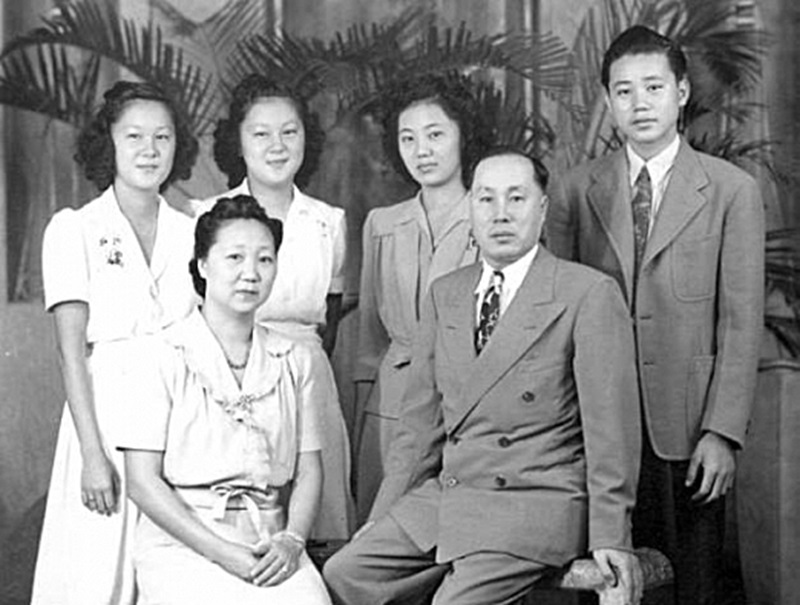As the Korea-America Association celebrates its 62nd anniversary, it is making a heartfelt appeal to locate the descendants of its founding president, the late Lee Won-soon (1890–1993). This search aims to honor Lee’s extraordinary contributions to U.S.-Korea relations, the Korean independence movement, and South Korea’s modernization.
Last October, the Korea-America Association selected Lee and his wife, Lee Mary, as recipients of the Korea-U.S. Friendship Award during its 22nd Annual Korea-U.S. Friendship Night held at Seoul’s Walkerhill Hotel. However, with no family available to accept the award, Kim Jin-hyun, Chairman of the World Peace Forum and former Minister of Science and Technology, stood in their stead. The Korea-America Association, under Chairman Choi Joong-kyung, now calls upon the Korean-American community to help locate Lee’s descendants in the United States.
Lee Won-soon’s legacy is deeply interwoven with the history of the Korean independence movement. Born in Seoul in 1890, he graduated from Bosung College (now Korea University) in 1914 and sought asylum in Hawaii at the age of 24.
There, he devoted three decades to Korea’s independence, initially working in a pineapple canning factory before rising through his remarkable business acumen. Lee became the first Korean millionaire in real estate, earning his brokerage license from the University of Hawaii and using his wealth to fund independence efforts.

As president of the Korean National Association from 1928 to 1943, Lee played a pivotal role in diplomacy and fundraising. He also submitted critical reports on the March 1st Independence Movement to the U.S. government and supported the Provisional Government of Korea in Shanghai, China. Lee’s influence extended to lobbying the U.S. Congress for immigration legislation benefiting Koreans, further cementing his reputation as a patriot and advocate for Korean interests.
Beyond politics, Lee left an indelible mark on sports diplomacy. In 1947, ahead of the Stockholm International Olympic Committee meeting, Lee created an unofficial “personal passport” to travel to Europe and lobby for Korea’s inclusion in the Olympics.
Despite being neither a U.S. citizen nor a national of a recognized sovereign state, he documented his case on official stationery, emphasizing the importance of Korea’s participation. British, Swedish, and Danish consulates granted him visas, recognizing Korea’s plight. His efforts led to South Korea’s historic first participation in the 1948 London Olympics. This passport is now preserved as a cultural artifact in the Korean Sports Museum.
In 1963, Lee founded the Korea-America Association to promote friendship and cooperation between South Korea and the United States. Under his leadership and that of other prominent figures, the Korea-America Association became a cornerstone of bilateral relations. For his immense contributions, Lee was posthumously awarded the Order of Merit for National Foundation in 1991.
He passed away in 1993 at the age of 102 and was laid to rest at the National Cemetery in Seoul. His wife, Lee Mary, a graduate of the University of Hawaii and former Vice President of the Korean Red Cross, predeceased him in 1983.
Lee’s personal life was marked by tragedy and resilience. The couple’s only son died during the Korean War, but their three daughters—Agnes, Marian, and Lillian—are believed to have married Korean-Americans and settled in the U.S. Now in their late 80s, two of the daughters are twins, and their descendants are thought to still reside in the United States. Lee was also the maternal uncle of the late First Lady Lee Hee-ho, wife of former President and Nobel Peace laureate Kim Dae-jung, making his daughters her first cousins.
Kim Jin-hyun, who accepted the Korea-U.S. Friendship Award on behalf of the Lees, described Lee Won-soon as “a quiet yet steadfast pillar of the U.S.-Korea relationship and an inspiration to younger generations.” Chairman Choi Joong-kyung echoed these sentiments, expressing hope that the Korea-America Association’s efforts, combined with support from the Korea Daily and the broader Korean-American community, will locate Lee’s descendants. “Presenting this plaque to Lee’s family would be a profound way to honor his role in Korea’s modernization and Korea’s Olympic history,” Choi said.
Finding Lee’s descendants is a responsibility that the Korean community shares. While 32 years have passed since his death, local Korean consulates and organizations working together could succeed in identifying his family. Relatives of a presidential couple, twin sisters in their late 80s, and their descendants would undoubtedly stand out in any community.
This search is not merely about recognizing a family; it is about preserving the legacy of a patriot whose vision and efforts shaped both Korea’s path to independence and its enduring relationship with the United States.
As South Korea commemorates the 80th anniversary of its liberation this year, the timing of this tribute is significant. Honoring Lee Won-soon and his family goes beyond the presentation of a plaque—it is a celebration of a legacy that continues to inspire future generations.
For information or assistance in locating Lee’s descendants, please contact:
• Chairman Choi Joong-kyung: choijk1956@hanmail.net
• The Korea Daily: (310) 617-9795
By Mooyoung Lee [lee.mooyoung@koreadaily.com]





